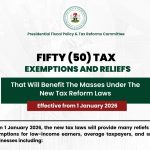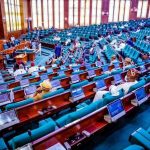Nigeria’s 2025 Tax Reform Acts—Nigeria Tax Act (NTA), Nigeria Tax Administration Act (NTAA) and Nigeria Revenue Service (Establishment) Act (NRSA)—were signed on June 26, 2025, with commencement January 1, 2026. They consolidate and modernise tax rules, create a single federal collector (NRS), and introduce reliefs aimed at small businesses while tightening rules for bigger firms.
Big wins (and watch-outs) for MSMEs
- Single, simplified tax code: Multiple older laws (CIT, PIT, VAT, CGT, etc.) are folded into the NTA, reducing overlaps and ambiguity. Expect clearer rules and fewer conflicting demands. (KPMG Assets)
- New national collector: The Federal Inland Revenue Service is rebranded/empowered as the National (Nigeria) Revenue Service (NRS)—the central body for federally-chargeable taxes. Expect tighter, tech-driven enforcement.
- Effective date: Government, business groups and the Minister of Finance confirm Jan 1, 2026 go-live. Plan your 2025 year-end around that.
Reliefs targeted at small businesses
- Who counts as “small”: Turnover ≤ ₦100m and total fixed assets ≤ ₦250m. Small companies are exempt from CIT, CGT and the new 4% Development Levy. (This is a big jump from the old ₦25m turnover bar.) (PwC)
- Personal income tax (PIT) relief: Individuals earning ≤ ₦800,000/year pay 0% PIT under the new progressive bands (top rate 25%). Helpful for micro-entrepreneurs/sole traders. (KPMG Assets)
- Agric start-ups: New companies in agriculture get five years’ income-tax exemption—a serious incentive if you’re entering crop, livestock, aquaculture, processing, etc.
VAT: rate unchanged, but rules improved
- Rate stays 7.5% (not 12.5%). The Acts instead focus on administration and input VAT recovery. (PwC)
- More zero-rated essentials: Basic foods, medical goods/services, educational books & tuition, electricity generation/transmission, and most exports are zero-rated—so suppliers can recover input VAT. Shared public road transport is VAT-exempt.
- Mandatory e-invoicing & VAT fiscalisation: Be ready to connect your POS/accounting tools to the tax authority’s system. (PwC)
New/changed taxes you should understand
- Development Levy (new): 4% of assessable profits (companies only). Small companies and non-resident entities are exempt. It replaces multiple mini-levies (e.g., TET, IT Levy, NASENI, Police Trust Fund). Budget for this if you’re medium/large. (tat.gov.ng, Afriwise)
- Capital gains overhaul:
- Companies: CGT rises from 10% → 30% (now aligned with CIT). (PwC)
- Individuals: Gains now taxed at your PIT band (0–25%), not a flat 10%. (EY)
- Digital/virtual assets & indirect share transfers are explicitly taxable. (KPMG Assets, PwC)
- Exports: Profits from goods exported are income-tax-exempt if proceeds are repatriated via official channels (oil & gas excluded). This strengthens prior rules and encourages FX inflows. ,(PwC Tax Summaries)
Incentives replaced/retuned
- Pioneer Status → Economic Development Incentive (EDI): Instead of blanket holidays, eligible firms get a 5% annual tax credit on qualifying capex for up to 5 years—tying relief to real investment. (Baker Tilly Nigeria)
Administration & taxpayer protection
- Unified procedures (NTAA): Advance rulings, clearer audits/assessments, and standard processes should cut disputes and processing time. (KPMG)
- Tax Ombudsman: An independent office for complaints and dispute resolution between taxpayers and authorities. Use this if you face unfair treatment.
Action plan for MSMEs (do these in 2025)
- Confirm your size status: Check turnover and fixed assets now. If you’ll be ≤ ₦100m and ≤ ₦250m by FY-2025, plan for zero CIT/CGT/Dev Levy in 2026 filings—but keep records tidy to prove it. (PwC)
- Map your VAT position:
- If you sell zero-rated essentials, plan to claim input VAT on services and capex from 2026.
- If you’re in passenger road transport, note the exemption (no output VAT) but keep costs tracked.
- Upgrade invoicing & POS: Choose accounting/POS tools that support e-invoicing/fiscalisation and capture input VAT correctly.
- Review capex timing: With EDI and input VAT recovery on services/assets, there’s a case to sequence 2026 capex to maximise credits and VAT recovery.
If you export (non-oil): Tighten your export proceeds documentation to lock in income-tax exemption.
- Agric entrants: If you’re eyeing agri-production or processing, incorporate and commence to qualify for the five-year holiday. (Global Law Experts)
- Digital assets: If you trade crypto/digital assets, ring-fence records—profits are taxable from 2026; losses offset only digital-asset profits.
- Talk payroll: Ensure staff earning ≤ ₦800k/year are placed in the 0% PIT bracket from 2026; adjust PAYE tables and HR software.
- Budget the Dev Levy (if not small): Add 4% of assessable profits to your 2026 projections; note which older levies it replaces.
- Know your escalation path: Keep the Ombudsman channel handy for quick redress.
Quick FAQs MSMEs are already asking
- Will VAT go up? No—stays at 7.5% under the Acts; focus is on better administration and broader zero-rating. (PwC)
- Is every small business tax-free now? Company taxes (CIT/CGT/Dev Levy) are waived if you meet both small-company tests; you still file returns and handle VAT, WHT, PAYE as applicable.
- I operate buses: Shared public road transport is VAT-exempt; still keep invoices and claim allowable input VAT where rules permit.
- Do I need new software? Practically, yes—e-invoicing/fiscalisation will require compliant systems.
Sources & further reading
Key business-grade summaries and official texts:
PwC Nigeria — The Nigerian Tax Reform Acts (Top 20 changes & sector insights); EY & KPMG alerts; official NTA/NTAA PDFs; and the Minister’s public statement on timelines.










